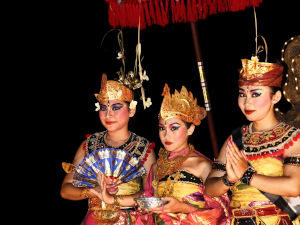Korean language skills will give you a competitive edge in the job market as well as access to the culture of this fascinating country.

Where can I study Korean?
Why study Korean?
Korea is a fascinating country with a 5000-year history. It also has a very bright future.
The Korean economy is the third largest in Asia after Japan and China, and eleventh in the world. Korean language skills will therefore give you a competitive edge in the job market as well as access to the culture of this fascinating country.
Korea is also the third largest destination market for Australian exports. Most major Australian companies are engaged in substantial trade activities with Korea. Companies such as CRA and BHP, and banks such as NAB, ANZ, Macquarie and Westpac have branch offices in Seoul. These companies repeatedly express a need for graduate trainees with business and Korean.
Australia is also a key provider of information technology to the Asian market, and tourism within Korean and Korean visitors to Australia, continues to grow. Thus, Korean language qualifications are attractive to prospective employers such as airlines, hotel chains, resorts, sporting and cultural facilities and tourist agencies.
Graduates with Korean are also in demand with the Commonwealth Public Service, especially Foreign Affairs and Trade and Austrade. Employment opportunities in the social work field may be enhanced by the knowledge of a significant community language. There are also many English teaching positions from kindergarten to university in Korea.
Course Information
Find information about UQ’s Korean courses here.
You can study Korean from beginners, intermediate or advanced level.
Depending on the program you are enrolled in you can study Korean courses as electives or complete a minor, secondary major (QUT), major or extended major.
It is possible to include Korean courses in most degree programs. UQ’s current students are studying arts, science, business and business management, law, engineering, social work and journalism. They see their Korean skills as a useful adjunct to their general and professional degree studies.
UQ also have postgraduate research program for those interested in the specialised study of Korea.

Indonesian
In addition to learning about Indonesia’s culture and way of life, Indonesian language skills can open doors to a wide array of future career options.

Korean
Korean language skills will give you a competitive edge in the job market as well as access to the culture of this fascinating country.

Russian
Study one of the world’s international languages, and learn more about Russia’s rich culture.

French
The use of French extends into all corners of the globe, and it is one of the major diplomatic languages of the world.

Spanish
The ability to communicate in Spanish is one of the most practical and transportable skills in today’s world.

Italian
Studying Italian will give you knowledge of a culture that has strongly influenced the art, music, architecture and literature of Europe and Australia.

German
A knowledge of German is an asset in numerous fields, and it will enhance your competitiveness in the job market.

Japanese
Making Japanese part of your degree means that you will have an advantage in your chosen career.

Chinese
Enhance your studies by learning Chinese – the career opportunities are unlimited.


